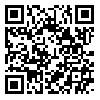The aim of this study was to investigate the efficacy of theory of mind in deaf children is improved theory of mind and social skills. This study is a quasi-experimental. The study sample was selected by convenience sampling. Sample the deaf, hard of hearing parents who were selected and then randomly divided into two groups: a control group and the experimental group received. Five and Six primary target sample size of 16 deaf children. Tools used in this test, scale test of theory of mind and social skills. Data were analyzed using ANCOVA. The results showed that the control test, the experimental group and the control group, there were no significant differences in the level of theory of mind (P>0.000), the theory of mind in deaf children's theory of mind has been improved. Also, the control test, the experimental group and the control group showed no significant difference in terms of social skills (P> 0.537), thus improving social skills training, theory of mind in deaf children has not been effective.
Received: 2016/06/4 | Accepted: 2016/12/28 | Published: 2017/01/1
| Rights and permissions | |
 |
This work is licensed under a Creative Commons Attribution-NonCommercial 4.0 International License. |

